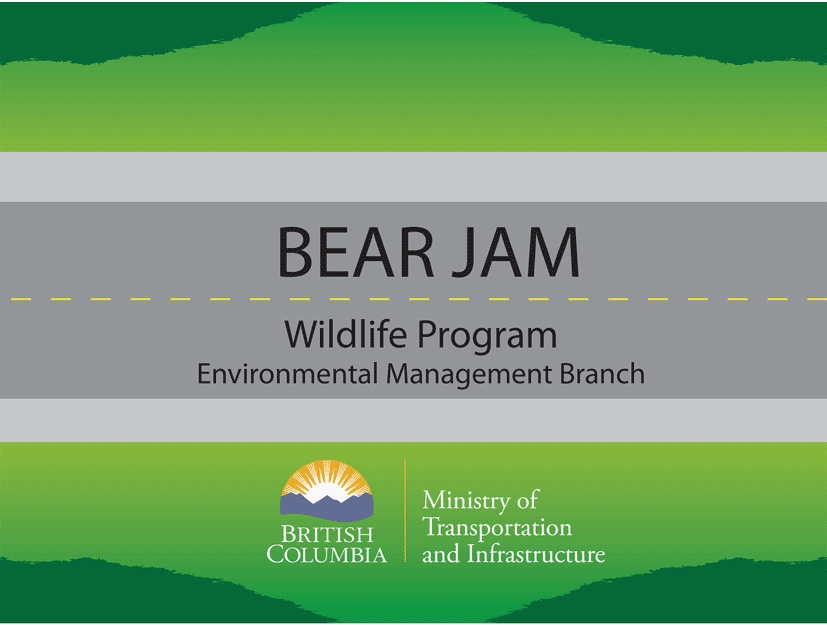
OK, choose your own adventure time… bear jams edition.
Scenario: You and your kids are driving along one of BC’s picturesque highways (imagine the Sea to Sky, or Highway 4 to Vancouver Island’s west coast). All of a sudden, you notice a number of stopped vehicles ahead and people gathered around, their attention drawn to… what’s that?… a mother bear with her wee cub! Wow!
Do you…
A) Pull over slightly, tell the kids to sit put, and grab your camera before setting up to take photos next to your vehicle…
B) Stop your vehicle on the road and get the kids out of their car seats before joining the crowd, which is now only a few metres from the bears… Hmm, maybe bears like eating Goldfish crackers?
C) Activate your vehicle’s flashing hazard lights to warn other drivers before slowing down and cautiously driving through the area, while looking out for oncoming traffic and people/bears crossing the highway. Look kids… bears!
If you chose “C,” then this chapter in your story turns out well – you didn’t contribute to an unsafe situation on the highway, where both the people and the bears were at risk. Yes, bears are fascinating animals; but unfortunately, people’s enthusiasm can get the better of them, especially if they are unfamiliar with the vulnerable and unpredictable nature of BC wildlife.
Bear jams have a number of negative impacts on people and bears.
Bad for People: Stopped vehicles fully or partially blocking travel lanes, along with people crossing the road and milling around the roadside, pose serious hazards, especially on sections of highway with narrow shoulders and limited sightlines. Bear jams make it difficult for drivers to safely pass through the area without conflicting with opposing traffic and people wandering around the road.
Oh yeah, and as for the bear jam culprits – creeping too close to bears in pursuit of Instagram fame can be hazardous to your health for obvious reasons.
Bad for Bears: Bears can become habituated to humans with too much close contact. Getting too close to them – or worse, feeding them (yep, it happens) – causes bears to lose their natural fear of humans, leading to an increase in human-bear conflicts and vehicle-bear collisions.
If you spot a bear while driving a BC highway, the best thing to do is pass through the area cautiously, watching for animals potentially darting onto the road. We strongly recommend you do NOT stop. That said, if you do choose to stop, we ask that you PLEASE…
- Only stop if there is a designated pull-out
- Stay in your vehicle, safe from the bear and passing vehicles
- Keep your distance so you do not disturb the bear, and leave if the bear begins to move closer
Highways allow us to travel through some pretty wild places. Let’s respect BC’s wild residents and our fellow drivers.
Join the discussion